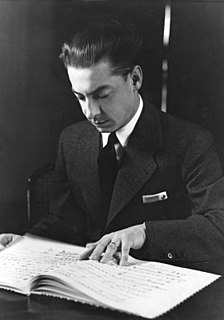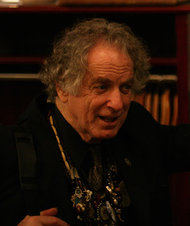A Quote by Esa-Pekka Salonen
You know, in some ways conducting is counter-intuitive. It's like winter driving in Finland - if you skid, the natural reaction is to fight with the wheel and jam on the brakes, which is the quickest way to get killed. What you have to do is let go, and the car will right itself. It's the same when an orchestra loses its ensemble. You have to resist the temptation to semaphore, and let the orchestra find its own way back to the pulse.
Related Quotes
The great myth is the manager as orchestra conductor. It's this idea of standing on a pedestal and you wave your baton and accounting comes in, and you wave it somewhere else and marketing chimes in with accounting, and they all sound very glorious. But management is more like orchestra conducting during rehearsals, when everything is going wrong.
There're some places that are more difficult or dangerous to navigate and I wouldn't look forward to going back. Like I'd much rather go back to Afghanistan - which fascinates me - quicker than I'd go back to spend a week walking around Nairobi, Kenya, which is a great and easy way to get yourself killed.
It's very intuitive, the way that I approach my work. I only buy something that has a pulse. I may not know how I'm going to use it, but I know it has a pulse and it has multiple readings - if I shift it one way or another, it can be read this way or it can be read that way, but both readings are critical and very much ground the work.
I always maintain that playing in an orchestra intelligently is the best school for democracy. If you play a solo, the conductor and everybody in the orchestra follows you. Then, a few bars later, the main voice goes to another instrument, another group, and then you have to go back into the collective [sound]. The art of playing in an orchestra is being able to express yourself to the maximum but always in relation to something else that is going on.
The Metropole Orchestra is like Count Basie or Duke Ellington with strings... it's strings that swing. Strings that swing like Dizzy Gillespie... keep swinging, baby. And when you have all of that special excellence of the Metropole Orchestra, then your music just flies - it soars in a way that's really magical.

































